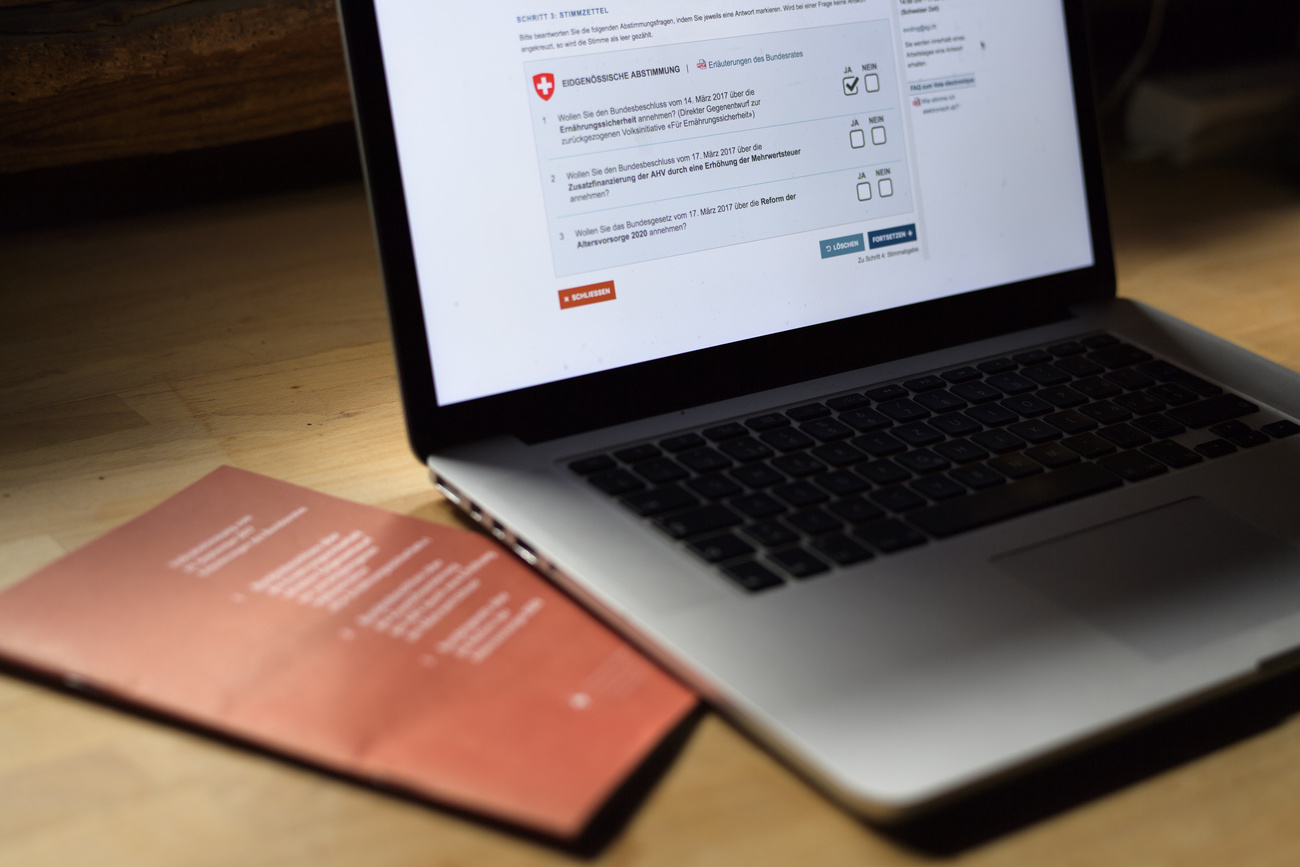Swiss Abroad views: the fight to exercise political rights
Swiss citizens living abroad have held the right to vote in Switzerland since 1976. Casting a ballot from outside the country was – and to some extent still is – something of an obstacle course.
The history of voting rights in Switzerland has tended to be a story of exclusion rather than inclusion. The model of the citizen voter was long that of an adult man, working in Switzerland and living a morally upright life.
Until 1971 Switzerland remained the last democracy in Europe in which only men could vote.
This exclusion also affected the Swiss Abroad. The predominant image of Swiss citizens abroad was one of emigrants who had decided to permanently turn their backs on Switzerland, be it to make a clean break from life back home, for marriage or to spend retirement abroad.

More
Why women made historic gains in the 2019 Swiss elections
This image first began to change after the Second World War. More and more Swiss began working abroad – often simply for a period of time and combined with the desire to return home someday.
Among these temporary economic migrants were those who worked at Swiss embassies or consulates, although they were by no means the only ones.
The constitutional article of 1966
In 1966 the Swiss Abroad were included for the first time in a constitutional article formulated purely for them. This was followed in 1976 by the first law that set out the political rights of citizens living outside the country. But because they were only allowed to cast their votes in their last place of residence in Switzerland, this right remained largely a theoretical one owing to the need to travel. It was not until 1992 that simplified postal voting was also extended to the Swiss Abroad.

More
Swiss Abroad views: what voting records show
The article of the Federal Constitution of 1966 states that the government “shall encourage relations among the Swiss abroad and their relations with Switzerland. It may support organisations that pursue this objective.” In addition, the government became entitled to pass uniform rules on political rights, military service and welfare provisions.
An official yes …
The government and parliament welcomed these changes and voted unanimously in favour of them. The main argument at the time was that the Swiss Abroad were ideal goodwill ambassadors for the country: their ties to their old home should be promoted.
The proposed changes in the constitution went to a mandatory referendum. During the campaign, all the major parties supported the initiative. Only the small Landesring der Unabhängigen, a social-liberal political alliance of independents, abstained. None of the political organisations issued a recommendation opposing the initiative.
… met by muffled scepticism
The final count was worse than expected. All of the cantons voted in favour, but only 68% of voters nationwide said yes. Almost a third of them said no.
On top of this result, turnout was low, at 48% – an anomaly in that period and evidence there was little enthusiasm for the concerns of the Swiss Abroad among the domestic electorate.
The willingness to constitutionally improve the rights of the Swiss Abroad was particularly weak in rural conservative circles. This segment of voters lacked deep ties to the Swiss Abroad and remained anchored in the traditional belief that emigration was a permanent move. The post-war evolution in perspectives about who the Swiss living abroad really were had bypassed them.
Pushback
The image of the Swiss Abroad became the subject of change in 1972. On August 1, Swiss National Day, the annual countrywide charitable drive, Nationalspende, solicited donations that for the first time would benefit organisations dedicated to strengthening ties between the Swiss Abroad and their compatriots back home.
That same year the 50th Congress of the Swiss Abroad took up the same cause, although delegates proved to be divided over the question of voting rights. The supporters argued that the large number of Swiss Abroad should not only be able to vote but should also be represented in the national parliament.
Their opponents came largely from countries like the United States – not least because exercising their political rights in Switzerland would immediately cost dual Swiss-American nationals their US citizenship.
In the end it was an expert government commission that had the final word: the Swiss Abroad could enjoy political rights but would only exercise them in their last place of residence in Switzerland.
As such the new law on voting rights was a costly victory for the Swiss Abroad. The principle was gradually abandoned, but any real breakthrough remained elusive.
The supposed breakthrough
It was not until 1992 that this practice, which has remained controversial, changed fundamentally. The impetus was the introduction of simplified postal voting – a process that proponents argued should be available not just to the Swiss at home but those abroad too. The stipulation that people had to travel to their last place of residence in order to take part in referendums or elections became obsolete. The proposal also caused a surge in political consciousness among the Swiss Abroad.
This coincided with a passionate debate about Swiss membership in the European Economic Area (EEA), a potential first step in joining the European Union (EU). The idea of national borders began to crumble. Discriminating against the Swiss Abroad no longer seemed advisable.
However, the issue was never decided in a national referendum. Instead, at a time of deep transformation, it remained purely an administrative act.
Remaining hurdles
Today the Swiss Abroad continue to face various hurdles. Swiss nationals living outside the country and who want to exercise their political rights have to first register, unlike their compatriots at home. Turnouts have remained low.
Overtime it has become evident that postal voting has failed to really solve the problem. The voting deadlines for those living abroad are determined by circumstances back in Switzerland. Above all, in second ballots, such as for the Senate, the postal documents rarely reach the Swiss Abroad in time.
E-voting – the long-awaited solution
The introduction of electronic voting has awakened new hopes – digital participation made sense to the Swiss Abroad.
However, any potential roll-out in time for the 2023 national elections has remained stuck in a second trial phase. The first trial had been abandoned due to worries about data protection. Extensive tests have followed.

More
Voters and cantons enthusiastic about ‘successful’ e-voting trial
Widespread scepticism about this innovation remains. And, crucially, it still has faint echoes of the traditional instinct of dismissing the political participatory rights of those citizens who have left Switzerland.
Edited by Mark Livingston. Adapted from German by Thomas Skelton-Robinson/gw.

In compliance with the JTI standards
More: SWI swissinfo.ch certified by the Journalism Trust Initiative










You can find an overview of ongoing debates with our journalists here . Please join us!
If you want to start a conversation about a topic raised in this article or want to report factual errors, email us at english@swissinfo.ch.